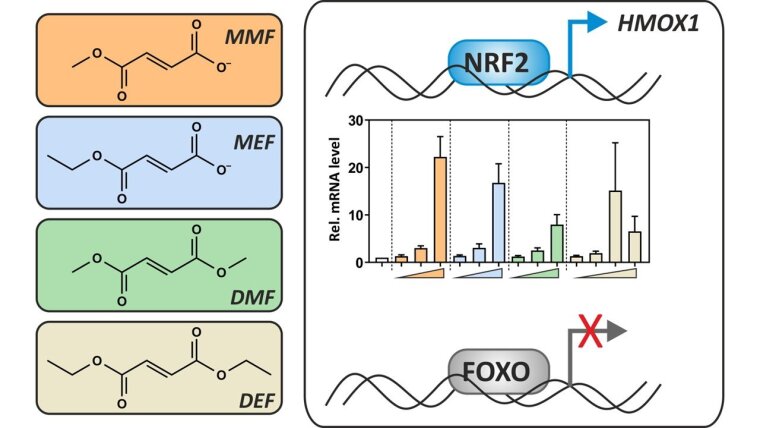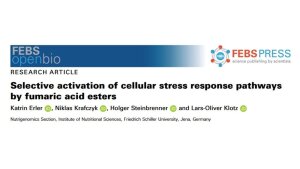
Erler et al., 2024
Screenshot: Josephine PriebsAbstract
The cellular response to oxidants or xenobiotics comprises two key pathways, resulting in modulation of NRF2 and FOXO transcription factors, respectively. Both mount a cytoprotective response, and their activation relies on crucial protein thiol moieties. Using fumaric acid esters (FAEs), known thiol-reactive compounds, we tested for activation of NRF2 and FOXO pathways in cultured human hepatoma cells by dimethyl/diethyl as well as monomethyl/monoethyl fumarate. Whereas only the diesters caused acute glutathione depletion and activation of the stress kinase p38MAPK, all four FAEs stimulated NRF2 stabilization and upregulation of NRF2 target genes. However, no significant FAE-induced activation of FOXO-dependent target gene expression was observed. Therefore, while both NRF2 and FOXO pathways are responsive to oxidants and xenobiotics, FAEs selectively activate NRF2 signaling. Erler et al., 2024Externer Link
